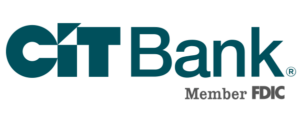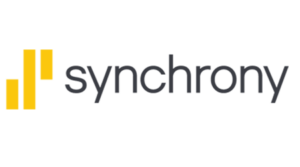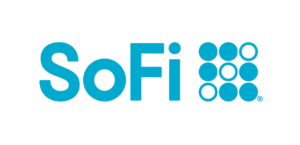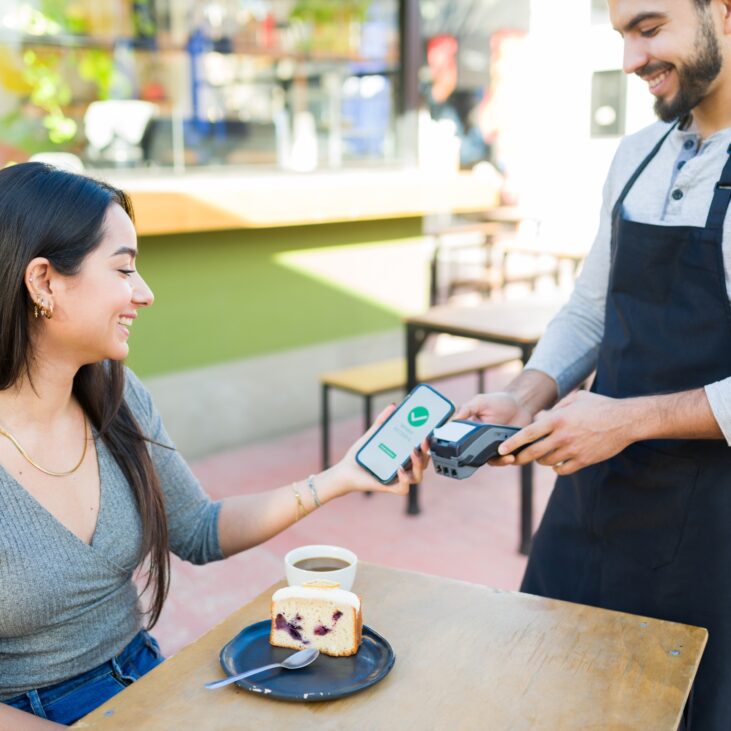Takeaways
- High-yield savings accounts help you earn interest income while you save.
- The best high-yield savings account meets all of your short-term and long term financial goals.
- Separate your emergency fund savings account from your slush fund account
- The FDIC insures savings deposits of up to $250,000.
- Setting up a high-yield savings account only takes a few minutes online or in-person.
What is a High-Yield Saving Account?
A high-yield savings account is a product offered by a bank or institution that pays you interest income on deposits held in your account. The bank or institution uses those deposits for other purposes, such as lending, and rewards you with interest income. High-yield savings accounts offer Annual Percentage Yields (APY) over and above most other banks, rewarding their depositors. APY is typically expressed as a percentage reflecting the total amount of interest paid on account holdings based on the account’s interest rate and frequency of compounding for 365 days.
You Might Also Like:
Smart Money -> 5 Amazing Smart Money Savings Habits to Start Now
Smart Money -> Best Checking Accounts of 2024
Best High-Yield Online Savings Accounts
| Bank Name | Smart Money Rating | APY | Quick Access |
|---|---|---|---|
| SoFi Checking and Savings | 5/5 | 4.60% | Learn More |
| Citizens Access Savings | 5/5 | 4.50% | Learn More |
| CIT Bank Platinum Savings | 5/5 | 5.05% | Learn More |
| Upgrade Premier Savings | 5/5 | 5.07% | Learn More |
| EverBank Yield Pledge® Online Savings | 5/5 | 5.15% | Learn More |
| Capital One 360 Performance | 5/5 | 4.30% | Learn More |
| Synchrony Bank High-Yield Savings Account | 5/5 | 4.75% | Learn More |
| Ally Online Savings Account | 5/5 | 4.25% | Learn More |
| Alliant High-Rate Savings Account | 5/5 | 3.10% | Learn More |
| Discover Savings Account | 5/5 | 4.35% | Learn More |
| Barclays Online Savings Account | 5/5 | 4.35% | Learn More |
| American Express High-Yield Savings | 5/5 | 4.30% | Learn More |
| Marcus Online Savings Account | 5/5 | 4.40% | Learn More |
| Quontic High-Yield Savings | 5/5 | 4.50% | Learn More |
Our Picks For Best High-Yield Online Savings Accounts
Focusing on Yield:
Member FDIC
EverBank Yield Pledge® Online Savings
Smart Money Rating: 5/5
Rewards Rate: 5.15%
Minimum Balance: None

Member FDIC
Upgrade Premier Savings
Smart Money Rating: 5/5
Rewards Rate: 5.07%
Minimum Balance: $1,000

Member FDIC
CIT Bank Platinum Savings
Smart Money Rating: 5/5
Rewards Rate: 5.05%
Minimum Balance: $5,000

Member FDIC
Synchrony Bank High-Yield Savings Account
Smart Money Rating: 5/5
Rewards Rate: 4.75%
Minimum Balance: None

Member FDIC
Synchrony Bank High-Yield Savings Account
Smart Money Rating: 5/5
Rewards Rate: 4.75%
Minimum Balance: None
Why Should I Have a Savings Account?
A high-yield online savings account should be an elemental part of anyone’s financial savings plan. After earning your hard-earned income and saving your discretionary income, you can either hold your excess cash in a savings account, checking account, or investments – such as stocks, bonds, or real estate – or simply keep it in the form of cash. No matter where you hold your savings, you want to earn a return on those funds because inflation causes the value of your money to decrease over time. To offset this erosion of purchasing power, you need to put your money to work. A high-yield savings account is an excellent low-risk investment.
Emergency Fund
Personal finance experts recommend having an emergency fund balance between $1,000 and $3,000 to protect yourself against unforeseen emergency expenses. Once you have saved your initial emergency fund, you might keep your funds easily accessible. A highly regarded high-yield online savings account is a terrific place to deposit emergency funds because you can earn interest, growing your account holdings over time.
Slush Fund
After you have saved your emergency fund, it is time to progress and start a slush fund. This account is for holding three to six months’ worth of living expenses. Your slush fund account should be a separate account from your emergency fund to bifurcate their intended purposes. The emergency fund is intended to cover only true emergency expenditures – unforeseen medical bills, car troubles, or appliance failure – while your slush fund is designed to act as a hedge against unplanned (or planned) changes in employment, career transitions, or simply time away from work.
Because your slush fund will be much larger than your emergency fund, you should also use a high-yield online savings account to store these funds for a rainy day. This will allow your account to grow and earn interest income, increasing your funds balance over time.
Smart Summary
A high-yield online savings account is one of the best ways to invest your money in the short run. These accounts usually have no or low fees, reduced minimum balances, are easily accessible, are highly liquid, and generate interest income. This type of savings account should be a staple in financial accounts. Putting your money to work in a high-yield online savings account is a smart money move.
Frequently Asked Questions
APY is the rate of return that your deposits in a high-yield savings account will earn in 365 days. Importantly APY considers both compounding interest and how often interest is paid on your account.
A savings account’s APY should be only one factor in the decision-making process. You should also consider account minimums, fees, ease of deposit access, bank reputation, and whether the bank is FDIC insured.
The FDIC, or Federal Deposit Insurance Corporation, protects bank depositors against losing their insured deposits if the bank fails [1]. You want to keep your funds in an account with an FDIC-insured bank. Most deposits are insured for up to $250,000 per institution.
(1) FDIC. Deposit Insurance FAQ. Last Accessed January 30, 2024.









